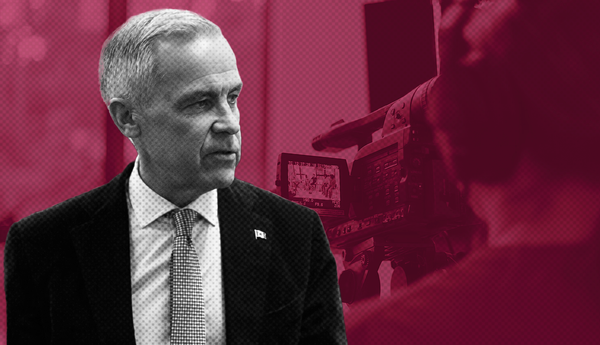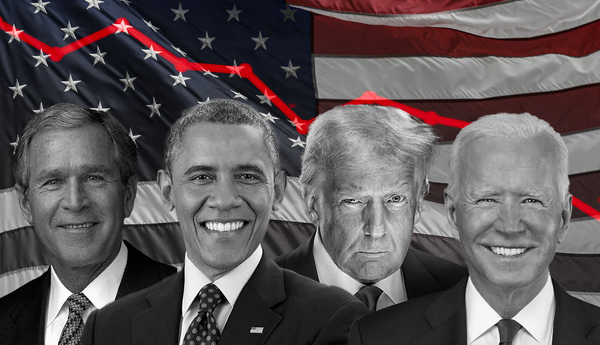Conservative Party Leader Pierre Poilievre is signalling what Canadians can expect if his party forms government later this year.
“We need a massive patriotic tax cut,” he said last month. “We […] need fewer bureaucrats,” he said a few days before. "We’re going to cut bureaucracy, cut the consultants, cut foreign aid, cut back on corporate welfare to large corporations,” he told Jordan Peterson before that.
While those comments were short on specifics, the top-line agenda is clear: cut, cut, cut.
The problem with Conservative cuts to government spending, as Ontarians living under Premier Doug Ford well know, is that they inevitably affect the services people rely on.
In Ontario, Ford has faced countless cycles of backlash after he cut environmental oversight, autism therapy for kids, funding for schools, free tuition for low-income students and a government advocate for foster children.
Poilievre’s plans for the federal government are even more ambitious than Ford’s. In Ontario, Ford promised to cut spending to shrink the province’s $7.4-billion annual deficit.
Poilievre has promised to balance the federal budget. But Canada’s budget deficit is projected to be $48.3 billion in 2024-25. Given that Poilievre has also promised tax cuts and increases to military and border spending, his agenda may require deeper funding cuts than Ford’s.
Here are some of the categories of federal spending that Poilievre has promised to cut or that Conservative governments have targeted in the past.
Good Government Jobs
“It is entirely clear what Pierre Poilievre means when he says he wants to ‘cut the bureaucracy’ in the government,” a spokesperson for the Public Service Alliance of Canada (PSAC), a union of 240,000 public workers, told The Maple by email.
“A Poilievre government would: Slash programs that families rely on; Shrink the size of the government so he can give away tax breaks to his corporate friends; and Sell off and privatize public services to put more tax dollars in the pockets of private contractors.”
PSAC’s members process passports and immigration claims, administer Employment Insurance, respond to natural disasters, manage parks, inspect workplaces, and more.
“It is common sense that fewer people helping a growing population isn’t going to solve the problems families are facing today,” the statement said.
As Dru Oja Jay has argued in The Breach, a strong public sector benefits all workers, not just workers in government jobs.
Public sector workers are five times more likely to be unionized in Canada than private sector workers. When unions fight for wage increases and better benefits, each win sets a precedent that can be referenced by other unions in their next round of negotiations.
“A strong public sector is one of the best tools we have to prevent wealth from endlessly accumulating among the corporate elite and ultra-wealthy investors,” Jay wrote.
“When tax money is used to create stable, unionized, decent-paying jobs, that’s money taken disproportionately from the top that flows into working-class communities.”
Social Programs
One of the first items the Conservative government of Stephen Harper cut was a national childcare program.
Once again, a national childcare program is in the middle of being implemented — but could be put on the chopping block if Poilievre wins the next election.
The Harper government also went after programs for gender equality, immigrant support, Indigenous communities and environmental oversight.
The departments of Women and Gender Equality; Immigration, Refugees and Citizenship Canada; Indigenous Affairs Canada; Indigenous Services Canada; and Environment and Climate Change Canada could again be at risk for funding cuts under Poilievre.
These ministries fund, for example: women’s shelters and women’s crisis helplines, which saw a surge in demand during the COVID-19 pandemic; flood warning systems, which are becoming more important due to climate change; and work to implement the Truth and Reconciliation Commission’s calls to action, such as making residential school records more accessible.
Foreign Aid
Poilievre has promised to cut foreign aid. Currently, the overwhelming majority of Canada’s foreign aid funding goes to Ukraine, with other top recipients including Nigeria, Ethiopia and Bangladesh.
In Ukraine, 30 per cent of the population required humanitarian assistance as of March 2023 because of the war with Russia, according to Global Affairs Canada. Canada is funding partners that provide basic needs such as shelter, food and sanitation, according to the ministry.
Other areas of Canadian foreign aid target climate change, queer and trans rights, and gender equality.
Canada has funded programs that, the government claims, provided four million people with “improved” access to renewable energy, and a trans-women-led organization that won the right of trans people to run for national office in Bangladesh.
Local Journalism
And then there is the CBC. One of the only specific cuts Poilievre has detailed — and he has mentioned it, many, many times — is funding for Canada’s public broadcaster. He says cuts to the organization will be “very quick” if he is elected.
The CBC receives about $1.4 billion a year from the federal government and employs more than 7,000 people.
According to a CBC report published last November, more than half the population, or 21 million Canadians, use CBC’s services. It is the most relied-upon news service in Canada.
The broadcaster also provides jobs and local news in dozens of communities unlikely to be well-served by corporate media.
The federal government also provides grants for local reporting through the Local Journalism Initiative. Between 2019 and 2022, an average of 408 journalists were hired every year with that funding, according to the federal government.
Poilievre hasn’t said outright that he would cancel the program. But he has disparaged it, calling the work done by these journalists “regurgitated propaganda paid for by taxpayers.”
Emma Paling is a journalist and writer in Toronto. Her award-winning reporting has been published widely by CBC News, The Breach, HuffPost and Vice.






